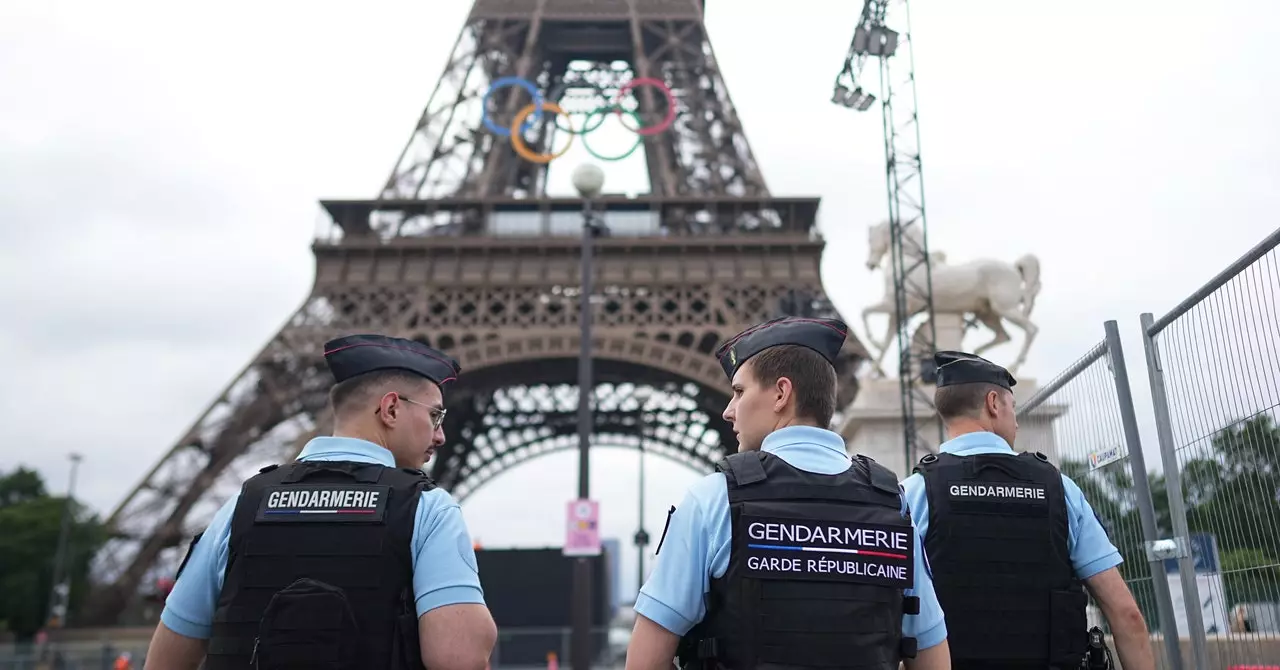Matthias Houllier, the cofounder of Wintics, is leading a movement to transform CCTV cameras into a powerful monitoring tool by utilizing innovative AI algorithms. With the deployment of these algorithms at the Olympics, Houllier believes that it is crucial to enhance surveillance in public spaces where it is impossible for police officers to react to every camera. Wintics initially gained recognition in Paris in 2020 when they gathered data on the number of cyclists in different parts of the city to assist transport officials in planning bike lanes by connecting their algorithms to existing traffic cameras. This system is still operational and can identify and count cyclists in busy streets efficiently.
One of the key aspects of Wintics’ AI surveillance systems is its focus on privacy-friendly measures. Unlike controversial facial recognition technologies used in past global events, Wintics’ algorithms analyze anonymous shapes in public spaces without infringing on personal freedoms. By training the algorithms on open-source and synthetic data, Wintics can count the number of people in a crowd or those falling to the floor, raising alerts when thresholds are exceeded. The company emphasizes that there are no automatic decisions made, and operators are responsible for assessing the situation after being alerted.
Despite the company’s claims, privacy activists like Noémie Levain are skeptical of the supposed privacy-friendly nature of AI surveillance systems. Levain and her group are distributing posters in the 20th arrondissement of Paris to warn residents about the dangers of algorithmic surveillance and the authoritarian capture of public spaces. She argues that analyzing images of people leads to the processing of personal and biometric data, raising concerns similar to facial recognition technology. Levain fears that these surveillance systems will persist in France after the Olympics, enabling heightened surveillance by security services.
Levain is particularly concerned about the impact of AI surveillance systems on perpetuating police stereotypes and discrimination in public spaces. She believes that these technologies will empower law enforcement to target specific areas and individuals based on biased assumptions, amplifying existing societal issues. As Parisians contemplate leaving the city during the Olympics, Levain worries about the long-term consequences of increased surveillance and the potential normalization of intrusive technologies. She emphasizes that the Olympics should not serve as an excuse for compromising personal freedoms and privacy.
The integration of AI surveillance systems into public spaces poses complex challenges related to privacy, security, and societal impact. While proponents argue for enhanced monitoring capabilities and public safety benefits, critics raise valid concerns about data privacy, discrimination, and the potential misuse of surveillance technologies. As debates surrounding AI surveillance continue, it is essential to consider the ethical implications and societal consequences of deploying such systems in urban environments.


Leave a Reply